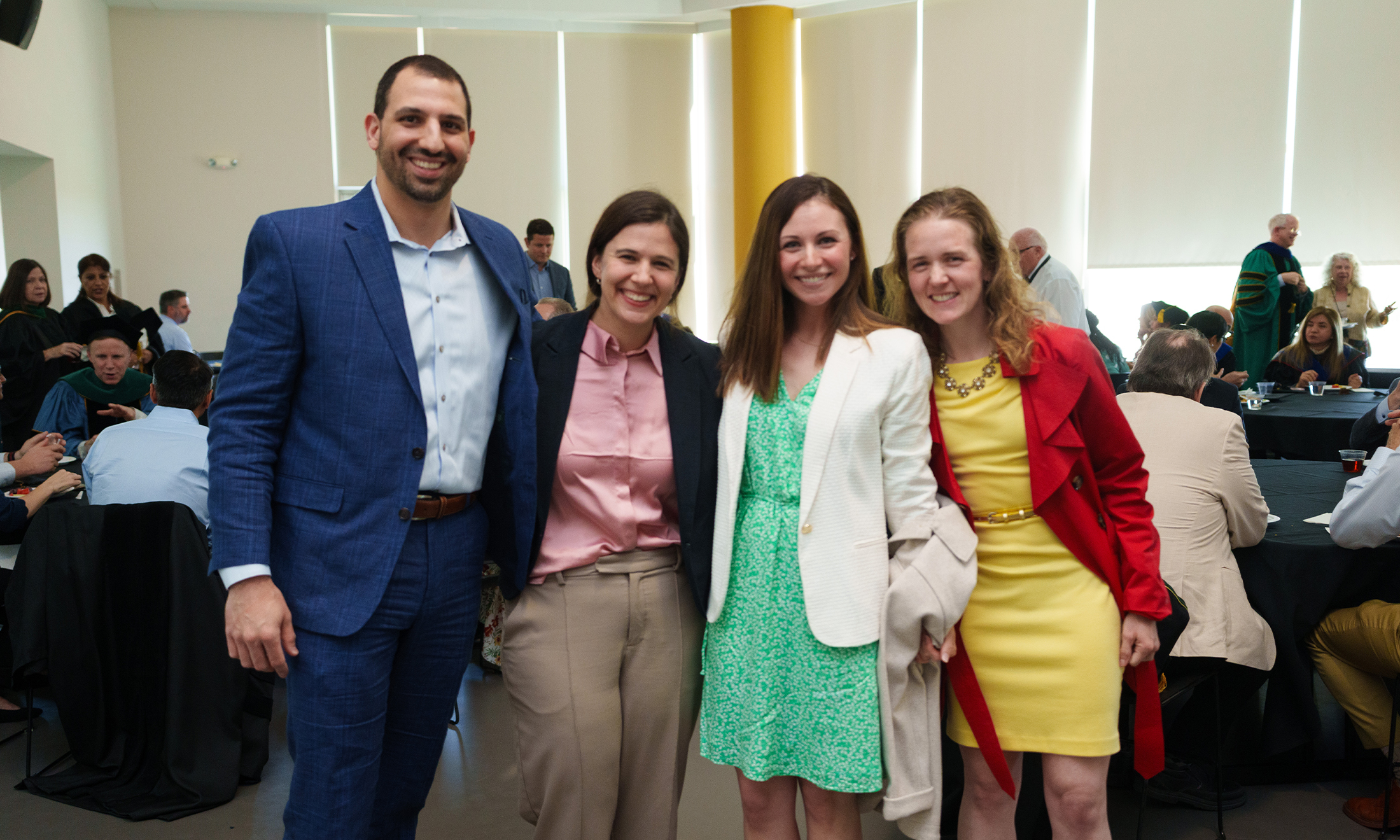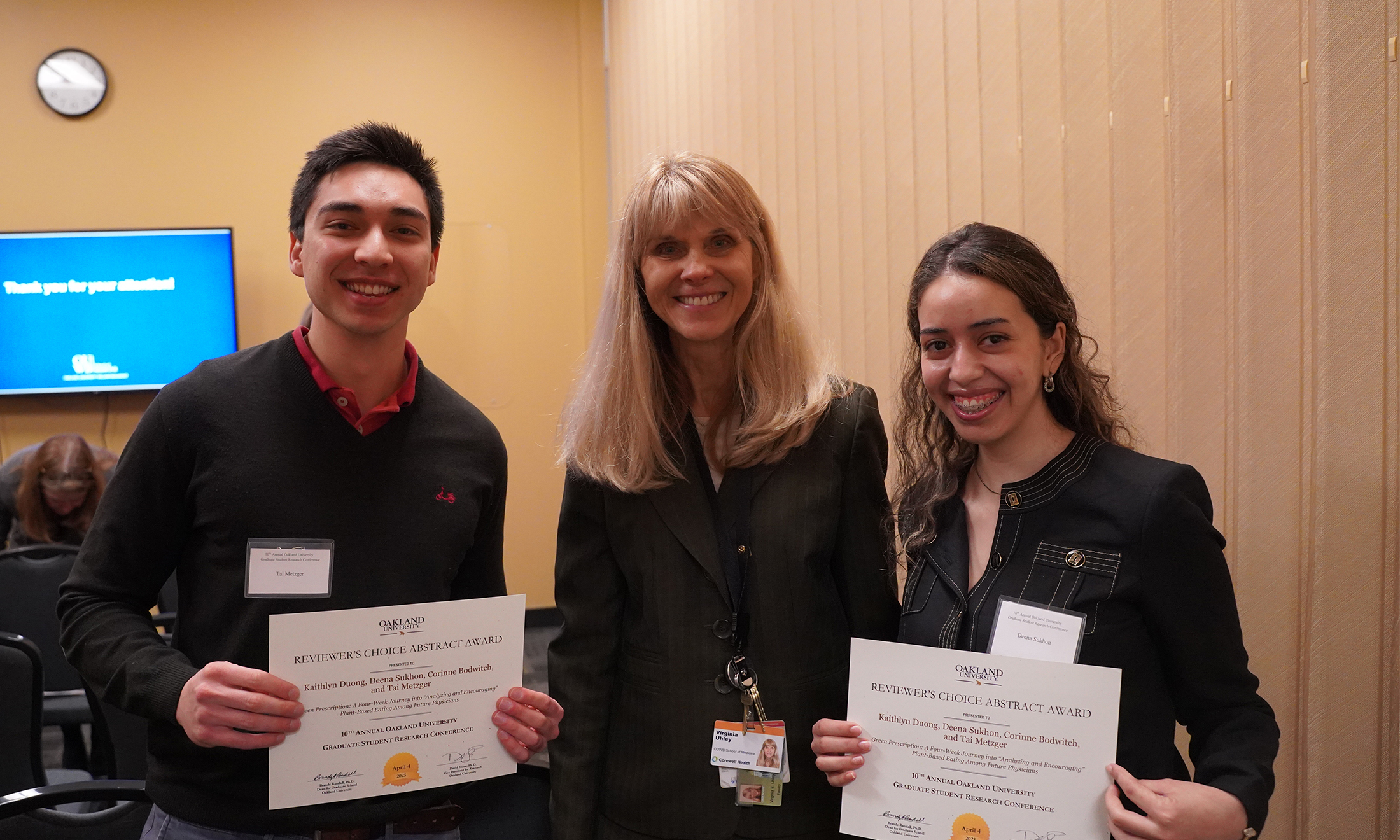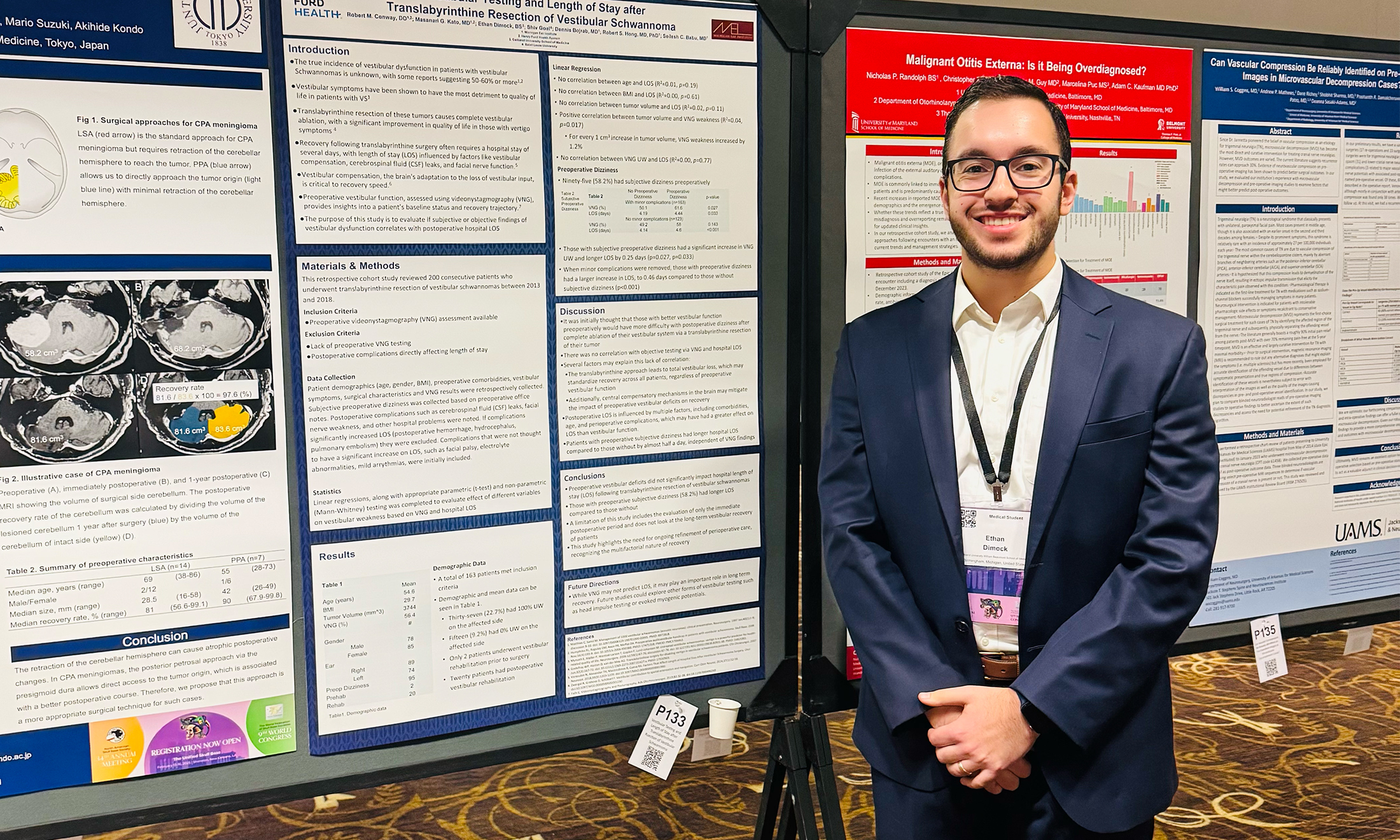Research jumps 73% for OUWB FMS
Research jumps 73% for OUWB FMS
The total number of citations from OUWB’s Department of Foundational Medical Studies increased substantially in the last year — a reflection of the school’s increased emphasis on research and the impact of COVID-19.
Total citations increased from 49 in 2019-20 to 85 for 2020-21. The increase is largely attributable to the number of articles in peer-reviewed journals, which jumped from 25 to 44.
Other publications included in the number of total citations are books and book chapters, meeting abstracts, and items posted to MedEd Portal.
Doug Gould, professor of Neuroscience and chair, Department of Foundational Medical Studies, said a big reason for the increase was COVID-19. The resulting pandemic changed how and when faculty work — and that generally had a positive impact on production.
Gould said faculty members were more likely to write at times they might not have in the past. If someone got the itch to write later in the evening, say 10 or 10:30 p.m., they just pulled out their laptops “and wrote and wrote and wrote.”
“I think (working remotely) freed up people from a well-being standpoint, to some extent, to work the 50-plus hours a week that they need to work to be awesome, to be excellent — and feel comfortable about it,” he said.
Additionally, he said, “people tend to be more productive when they’re psychologically healthy” equating it to the increased amount of quality time that faculty members had with their children, or in some cases, they could devote to caring for an elderly family member.
Abram Brummett, Ph.D., assistant professor, Department of Foundational Medical Studies, authored/co-authored 16 papers during the year.
“I want OUWB to be a nationally recognized center of excellence in medical humanities and clinical bioethics,” he said.
“Working hard at publishing quality research in my field is one of the best ways I can further that goal.”
He said working from home has given him “the time, space, and flexibility I need to focus my energy in unusually productive ways.”
He also noted that platforms like Zoom have made it easier to engage with various audiences and collaborators.
Faculty like Brummett said publishing as much as they did during COVID-19 will be tough to repeat, but “returning to campus will allow me to focus on other goals like participating more fully as a member of the OUWB community.”
“As a faculty member who started at the outbreak of the pandemic, I am really looking forward to finally experiencing the day-to-day of campus life.”
The COVID-19 effect coincided with an overall increased emphasis on research at OUWB. Gould said when the school welcomed its first class in 2011, the plan was to ramp up research efforts about nine years later.
Toward that goal, one of the biggest steps taken was the hiring of Ramin Homayouni, Ph.D., in late 2018.
As OUWB’s founding director of Population Health Informatics, he is responsible for developing both graduate and research programs focused on Population Health in collaboration with various departments at Oakland University and Beaumont Health.
Last September, Luca Cucullo, Ph.D., joined OUWB as a professor, primarily serving on a research track.
More hires to bolster OUWB’s research efforts are on the way.
Gould said he’s hopeful the increased investments in research-track faculty will offset any decreases in production from educator-track faculty as OUWB returns to life as it was before the pandemic.

 September 30, 2021
September 30, 2021
 By Andrew Dietderich
By Andrew Dietderich









